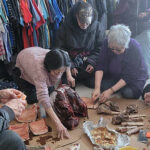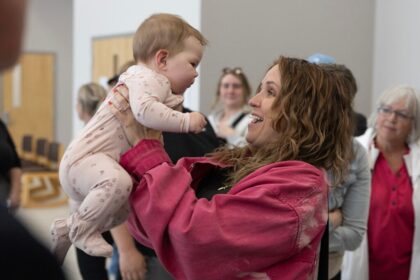SudburyThe CEO of Matawa First Nations Management (MFNM) says the organization is reviewing the verdict and 79 recommendations from an inquest into the deaths of five members of Constance Lake First Nation.MNFN says anyone requiring emotional support and assistance can contact NAN Hope at 1-844-NAN-HOPE (626-4673).Kate Rutherford · CBC News · Posted: Nov 28, 2025 6:00 AM EST | Last Updated: 6 hours agoListen to this articleEstimated 3 minutesThe audio version of this article is generated by text-to-speech, a technology based on artificial intelligence. A sign welcomes people to Constance Lake First Nation west of Hearst, Ont. Four years ago, five members died after contracting the fungal lung disease, blastomycosis. (Zacharie Routhier/Radio-Canada)The CEO of Matawa First Nations Management (MFNM) says the organization is reviewing the verdict and 79 recommendations from an inquest into the deaths of five members of Constance Lake First Nation.Luke Moore, Lorraine Shaganash, Lizzie Sutherland, Mark Ferris and Douglas Taylor died after an outbreak of a fungal lung disease called blastomycosis in 2021-22.It’s caused by breathing in spores that grow in specific conditions that include the combination of heat, high nitrogen levels, decaying wood and wet soil.MFNM CEO Sharon Nate said, in a statement, that lessons learned from the inquest should prevent similar deaths from ever happening again in the region, and across Canada.“We acknowledge the long and difficult process for the families, friends, and community, and we honour their strength, resilience, and unwavering resolve,” she said.She urged anyone requiring emotional support and assistance to contact NAN Hope at 1-844-NAN-HOPE (626-4673).The tribal council represents nine first nations, including Constance Lake, and oversees a number of divisions.One of them, Four Rivers Environmental Services, responded to the health crisis in November of 2021, and gathered soil samples for testing for the disease-causing spores, and also created and distributed educational materials to raise awareness about blastomycosis.It also established a weather station in Constance Lake to monitor weather patterns that were suspected of helping to create the ideal conditions for the growth of spores in the soil.The manager of Four Rivers, Sarah Cockerton, said that she was glad to see the wide variety of recommendations addressing environmental issues.Specifically, she said the clean-up of blue-green algae in Constance Lake and the remediation of an abandoned sawmill site near the entrance to the nation, whether they contributed the health crisis or not, would be progress.She said Four Rivers had been plowing ahead with soil sampling and research as their time and resources would allow since the outbreak, but recommendations underlining the importance of continued research lends their work weight and could attract collaborators.Coroner’s jury calls for funding for research hubThe jury highlighted the establishment of a research hub into blastomycosis in the community which Cockerton said was an idea that was already being tossed around.“Those kind of conversations have been ongoing, but now they can be expedited or expanded,” she said.“So that’s positive and really bringing together, I think, a larger community of researchers.”Another recommendation calls for funding to help implement such a hub.Cockerton said that may inspire partners with some money to join them. “We’ve been trying to continue the work with nothing, specifically to this,” she said. “So any resourcing would make a huge, huge difference in being able to actually make things happen.”One of her hopes, said Cockerton, is to gain a better understanding of blastomycosis, where it grows and when, in order to be able to keep communities informed so that they are not in a continual state of fear of another outbreak.The recommendations from the inquest are non-binding.ABOUT THE AUTHORKate Rutherford is a CBC newsreader and reporter in Sudbury, covering northern Ontario. News tips can be sent to kate.rutherford@cbc.ca
Wednesday, 4 Mar 2026
Canada – The Illusion
Search
Have an existing account?
Sign In
© 2022 Foxiz News Network. Ruby Design Company. All Rights Reserved.
You May also Like
- More News:
- history
- Standing Bear Network
- John Gonzalez
- ᐊᔭᐦᑊ ayahp — It happened
- Creation
- Beneath the Water
- Olympic gold medal
- Jim Thorpe
- type O blood
- the bringer of life
- Raven
- Wás’agi
- NoiseCat
- 'Sugarcane'
- The rivers still sing
- ᑲᓂᐸᐏᐟ ᒪᐢᑿ
- ᐅᑳᐤ okâw — We remember
- ᐊᓂᓈᐯᐃᐧᐣ aninâpêwin — Truth
- This is what it means to be human.
- Nokoma











